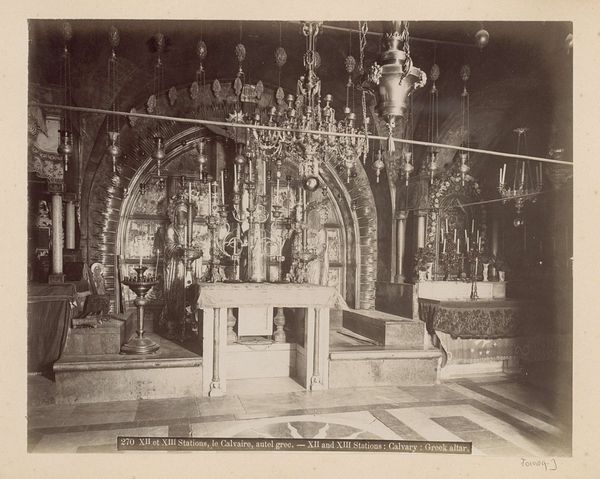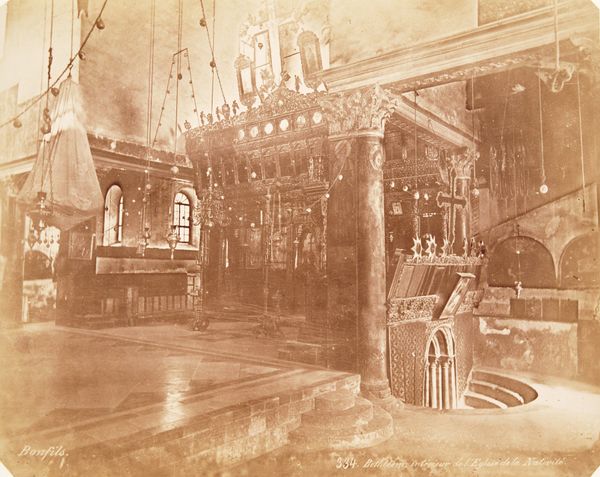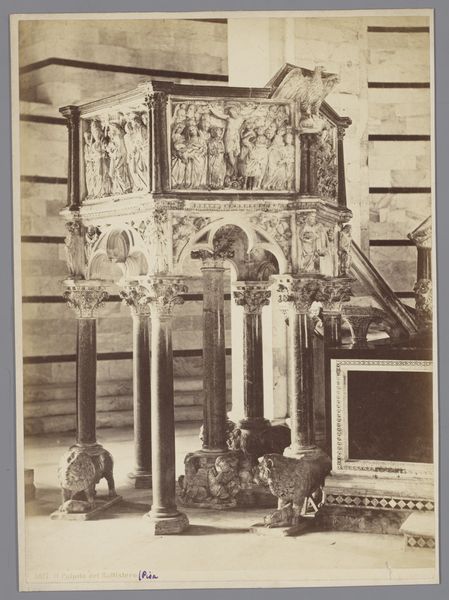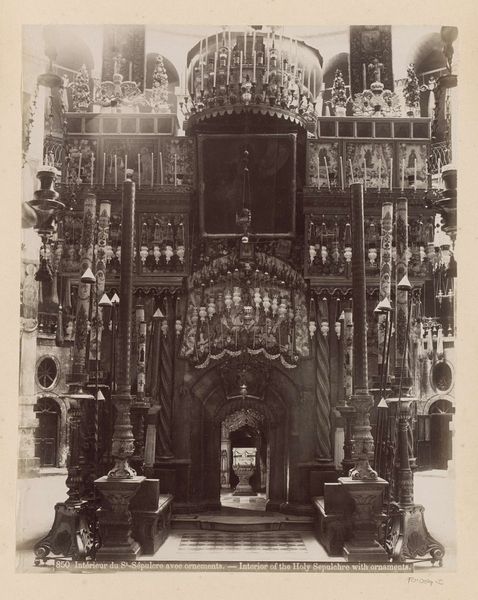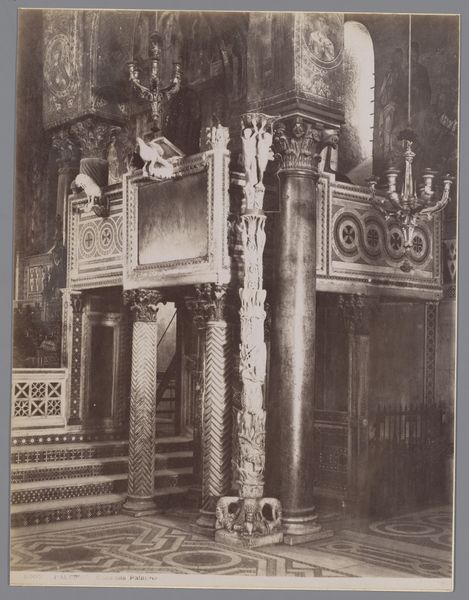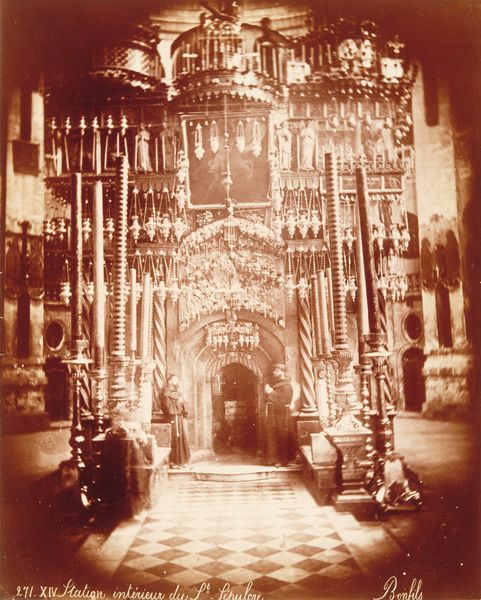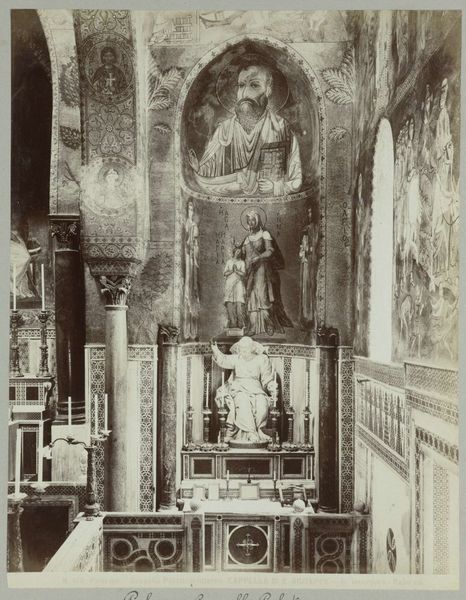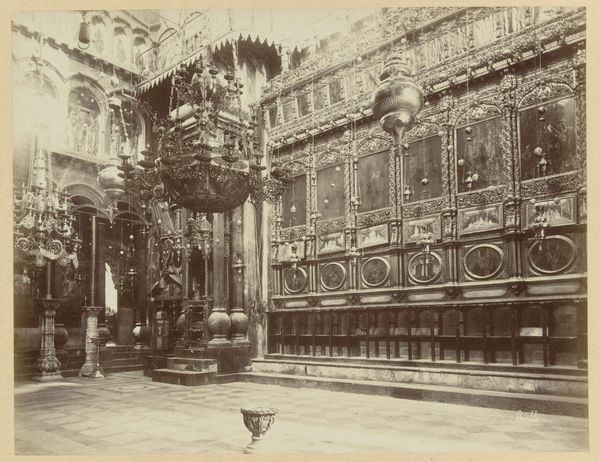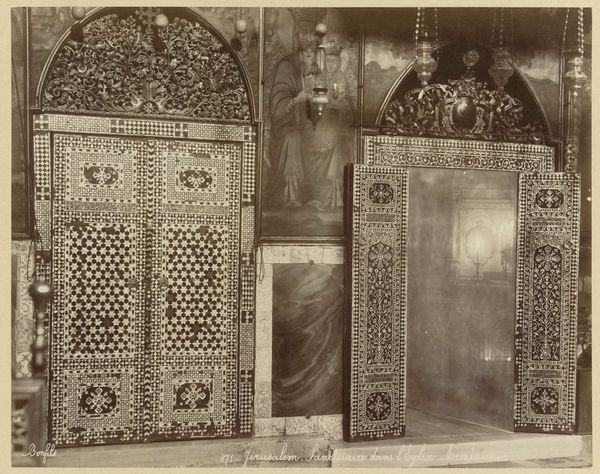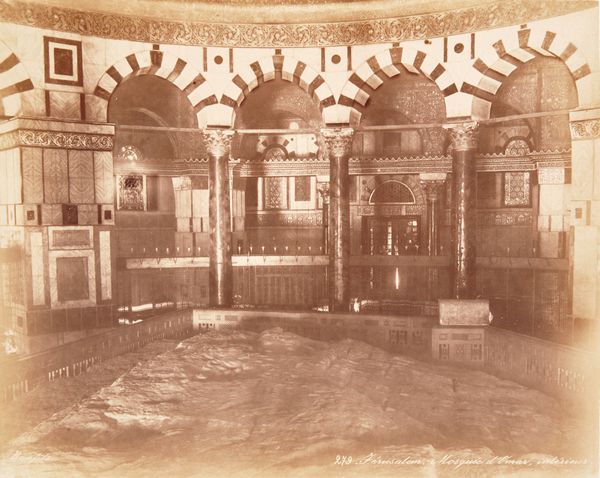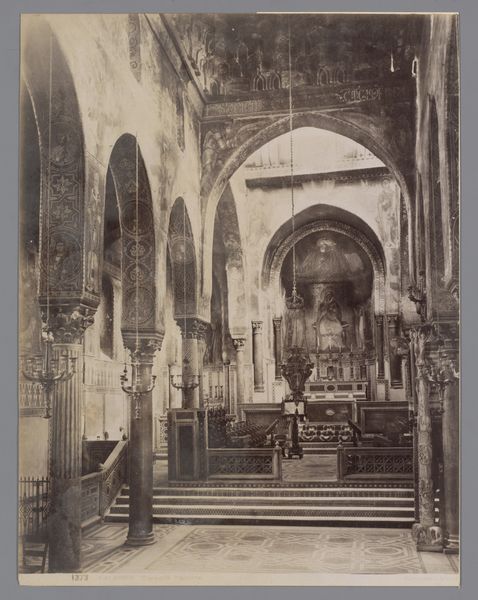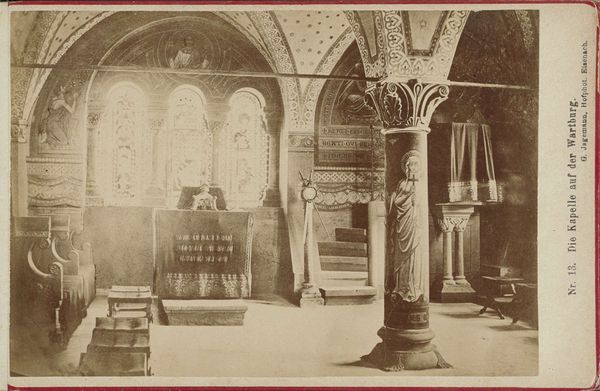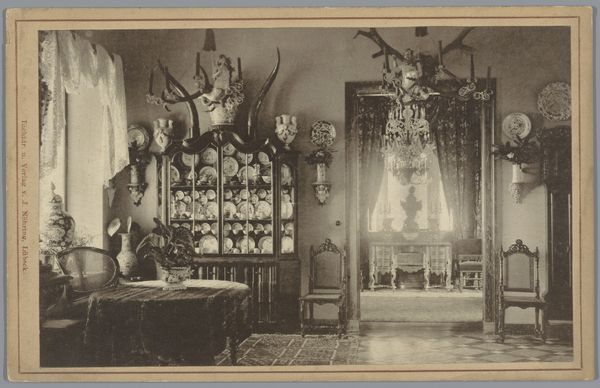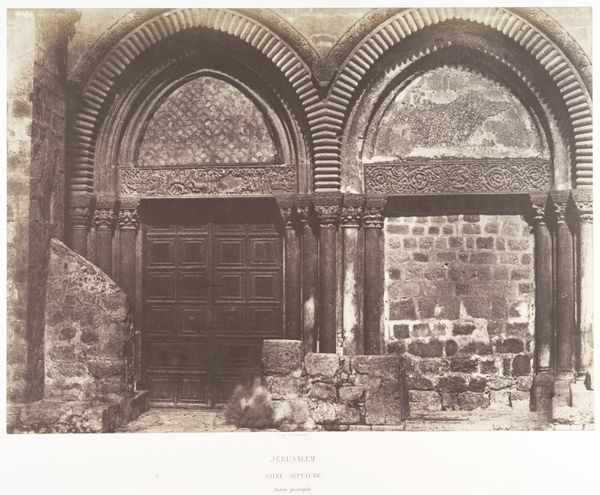
albumen-print, photography, albumen-print
#
albumen-print
#
landscape
#
photography
#
france
#
19th century
#
islamic-art
#
study
#
albumen-print
#
realism
Dimensions: 8 5/8 x 11 1/8 in. (21.91 x 28.26 cm) (image)11 x 14 in. (27.94 x 35.56 cm) (mount)
Copyright: Public Domain
This albumen print, Le Calvaire, was made by Félix Bonfils, probably in the 1870s, using a process that transformed humble egg whites into a key ingredient for photography. Albumen, brushed onto paper and sensitized with silver nitrate, created a smooth, glossy surface ideal for capturing fine details. The process involved coating paper with this mixture, exposing it to light through a negative, and then carefully washing and toning the print to achieve the desired sepia tone. In Bonfils's time, photography was a relatively new and complex technology, requiring significant skill and resources. The final product was thus imbued with cultural value, transforming a simple scene into a precious object. The tonality is striking in that the architecture almost appears to be made of gold. The presence of the photographer is almost an intrusion, but it makes visible a place that few people could access at the time. Considering the labor involved in creating photographs like this, we can appreciate how Bonfils elevated a common material into a medium for capturing and sharing images of distant lands.
Comments
No comments
Be the first to comment and join the conversation on the ultimate creative platform.
